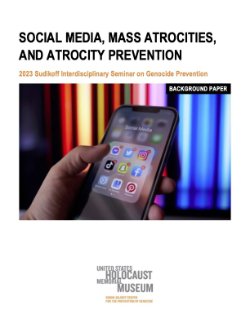By James Barnett, Shiraz Maher, Charlie Winter
As intercommunal violence has intensified in many Western countries in recent years, members of the terrorism studies community have sought to better understand the commonalities and interplay between radical Islamists and extremists on the far‑right. One theory that has gained particular traction of late is that of “reciprocal radicalisation”, the notion that far‑right and Islamist extremists feed off each other’s words and actions in a “spiral of violence.” This theory entered the mainstream in the mid‑2000s and quickly attracted the attention of policymakers and counterterrorism practitioners, particularly in the United Kingdom (UK). In, for example, his 2007 speech on “bringing down the barriers to cohesion”, Prime Minister David Cameron appeared to allude to it when he described Islamist extremists as a “mirror image” of the far‑right British National Party (BNP).
The purpose of this review is to examine the extent to which reciprocal radicalisation plays out in reality and, if it does, whether there exists any operational or tactical exchange between far‑right and radical Islamist terrorists. To this end, our intent is to summarise and synthesise the literature on how and why terrorists across the ideological spectrum develop and deploy innovative practices, be they tactical, strategic, organisational, or doctrinal in nature. Beginning with an examination of how social scientists understand creative processes within “malevolent” organisations, we offer an overview of what factors have been identified as influencing the innovative and learning‑based practices of terrorist organisations. In the second section, we examine the existing literature on reciprocal radicalisation before turning to the limited scholarly work that covers what one might call “operational reciprocity” between far‑right and Islamist extremists – that is, an exchange of knowledge and/or material collaboration between groups.
There are important policy implications to each of these questions. If reciprocal radicalisation is indeed as widespread and consistent a phenomenon as some proponents of the theory claim, then it would mean that many Western societies are already trapped in a vicious cycle of violence where the far‑right and Islamist extremists act as self‑fulfilling influences on each other. Relatedly, it has been anecdotally established that far‑right extremists have borrowed from the jihadist playbook, which would potentially help them increase the efficacy of their tactics – both lethal (e.g. bombmaking) and non‑lethal (e.g. social media messaging). In short, were this to be the case, it would be a potentially grave mistake to treat the far‑right and jihadist threats in isolation rather than examining how they interact and influence one another.
London: International Centre for the Study of Radicalisation (ICSR), King’s College London , 2021. 22p.





















